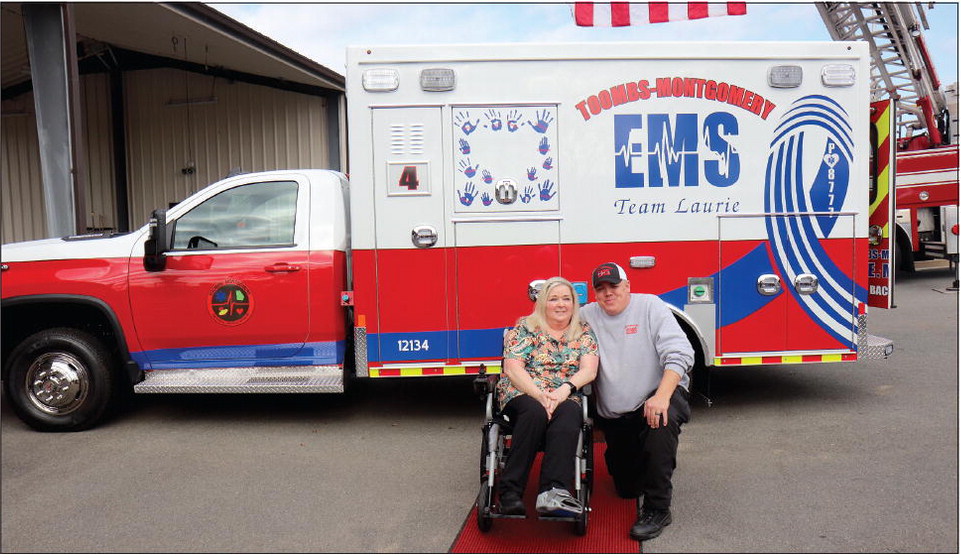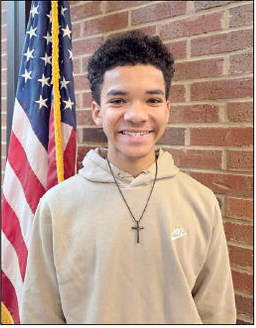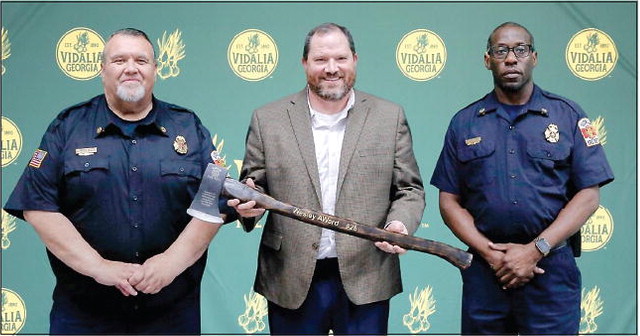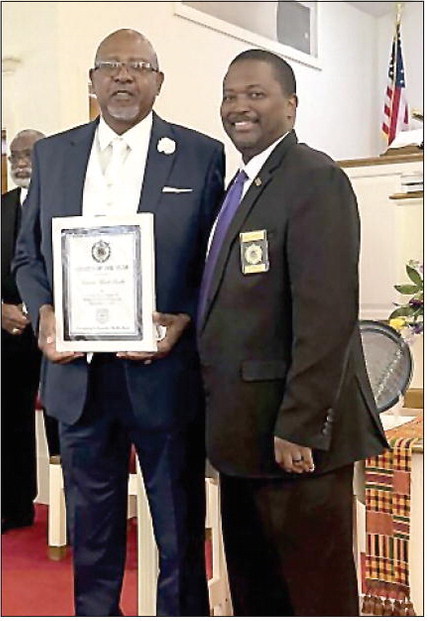Meadows Keeps Lifesaving Cardiac Care Close to Home
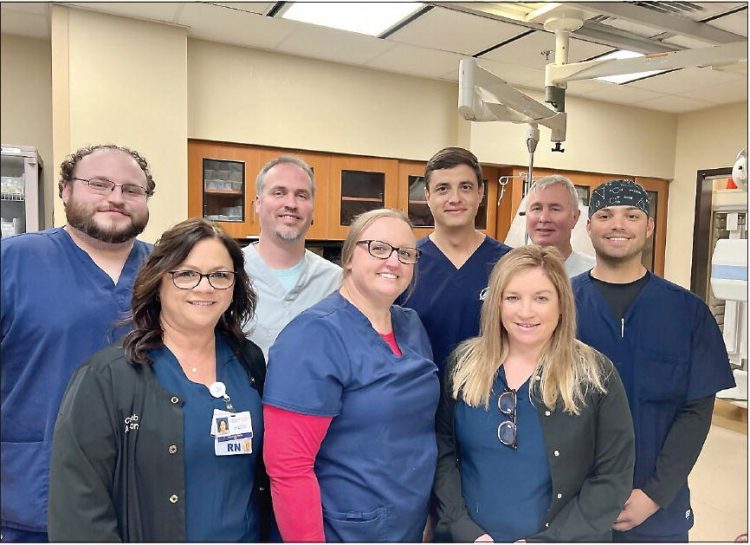

Cardiovascular disease is the number one killer for all age groups across the United States, but the good news is that the incidence of major heart attacks has declined significantly in the last 20 years — and with proper intervention, even the most serious heart attacks don’t have to be fatal.
At Memorial Health Meadows Hospital in Vidalia, patients coming to the Emergency Department with chest pains that are diagnosed as a heart attack can expect rapid response and cutting-edge treatment thanks to cardiovascular innovations at the regional facility. Short of doing open heart surgery, which is still accomplished at larger tertiary facilities, Meadows keeps heart care close to home.
Meadows now has a state-of-the art Cardiovascular Department and Catheterization Lab staffed by three cardiologists and two electrophysiologists (EPs). Their cardiovascular staff is on call 24 hours a day, 365 days a year. The team is ready to perform catheterizations and other life-saving cardiac procedures within minutes from the time the patient arrives in the Emergency Department.
Recently, as the two EPs — Dr. Todd Senn and Dr. David Newton— joined Meadows, capabilities were expanded to offer fitting patients with pacemakers and defibrillators, and soon cardiac ablation, which corrects abnormal heart rhythms, will be available.
“Meadows Hospital has been a leader in providing heart care for more than 20 years,” said Matt Hasbrouck, CEO. “Our cardiovascular program has expanded over the years to include lifesaving heart attack treatment as well as treatment for electrical issues with the heart. We are proud to offer advanced cardiology services close to home for our patients.”
Heather Walters is Director of Cardiovascular Services at Meadows and has witnessed the evolution of local life-saving services in cardiovascular medicine. She joined Meadows six months after the facility set up a catheterization lab. “We were a diagnostic only catheterization lab starting in 2001. We did catheterizations, but didn’t intervene by placing stents,” Walters said. After stabilizing the patient, “We looked at coronary vessels, visualized the problem, and sent the patient off to another hospital to get a stent placed,” Walters said.
In 2004, Travis Roose was the Director of Cardiovascular Services at Meadows. He had been with Meadows since the 1990s, beginning as a transporter for the Radiology Department, then as a radiologic technologist, and as a scrub technologist by the time Walters joined Meadows. After additional training, new degrees and certifications, Roose left Meadows in 2021 to head Cardiovascular Services at Memorial Health University Medical Center in Savannah. “He and Dr. Giles had the vision for the interventional catheterization lab,” Walters said.
Under the guidance of cardiologist Dr. Joseph Giles, Meadows established an interventional catheterization lab in 2010 where emergency services for heart attack patients were greatly expanded. “Our goal was to expand our capabilities, and ultimately save more lives,” said Dr. Giles.
After Roose’s departure, Walters assumed the Director’s position for Meadows’ Cardiovascular Services. Her job encompasses overseeing the day-to-day operation of the Department — from staffing to inventory, and circulating patient cases to electronic documentation.
The Department has come a long way during Walters’ tenure at Meadows, “We run a service where we can intervene through stent placement, and have access to intraaortic cardiac devices which are advanced services for patients in cardiogenic shock where the heart muscle has taken a significant hit. These devices will assist and stabilize the heart,” Walters said.
Meadows went from being a facility which had to send patients to other facilities for advanced care to being a facility where area hospitals now send their cardiac cases for interventions and other lifesaving treatment, she said. “Before 2010, the only options in treating a heart attack were drugs like clot busters; but that was not the gold standard. The gold standard is percutaneous coronary intervention (PCI) that started in 2010. That was progressive for this area. We were the first facility in this region between Macon and Savannah to offer this service,” Walters emphasized.
Cardiologist Dr. Andrew Burton joined Meadows in 2018 and is on staff as a full-time partner of the cardiovascular medicine team with Dr. Giles, and part-time cardiologist Dr. Kendall Griffith. He explained, “The most important thing with a heart attack and blocked arteries is the time from arrival in the Emergency Department to getting blood flow open. Time is heart muscle and time is life”, he stressed.
“When someone comes in who is having a heart attack, the key is to get the cath lab up and running and opening arteries as quickly as possible,” Dr. Burton said. After the Emergency Department doctor recognizes the patient’s symptoms as a heart attack, that physician activates the catheterization team for rapid intervention by opening the arteries and restoring blood flow. “It is strongly recommended to get this done in 90 minutes, which we achieve consistently,” he said.
Burton praised the dedication of the cardiovascular team that is ready to respond at a moment’s notice. “It’s a really remarkable, effective system. Having that service here has made a tremendous difference in the outcome of heart attacks in this region.”
It was a cutting edge procedure pioneered at Meadows that drew Dr. Burton to the Vidalia facility. A native of Baton Rouge, Dr. Burton did his general cardiology fellowship at Johns Hopkins Hospital in Baltimore and practiced in Newport News, Virginia, for over 20 plus years. He decided that he wanted to venture into interventional cardiology, and after engaging in a fellowship at St. Vincent’s Hospital in Worcester, Massachusetts, earned his certification in this field. A cardiologist in Vidalia was pioneering a new technique and Dr. Burton was interested.
Reflecting on the strides that have been made in cardiac medicine, Dr. Burton said the decline in the incidence of major heart attacks in recent years may be attributed to not just medical intervention but in the public’s awareness of the value of prevention — lifestyle changes and regular medical checkups. One of most prevalent heart problems is congestive heart failure. The recent revolution of new medicines that have become a standard in cardiac care, as well as intervention by cardiac specialists, have made a significant difference, adding an average of seven years to the survival rate, Dr. Burton noted. “When I started medical school, the only study that had shown treatment difference was a Veterans Administration study where they put the patient to bed for six weeks in hopes the heart would get stronger. Now, we have new medicines, new devices, coronary intervention for acute treatment, and revolutions in medicine that have occurred in the last half century.”
Dr. Burton said the incidence of heart attacks for men and women is about equal, and most women tend to have the same symptoms as men. Men are at a higher risk earlier in life, but women tend to catch up after menopause, he said “We’re in the ‘belt’ for cardiovascular disease in this area,” Walters said. She attributes this fact to lifestyles that lead to poor eating habits and obesity, coupled with smoking, as regional factors. “We are starting to see younger people with heart problems,” she said. Meadows does not treat children with heart issues, however, since this is an area of medicine handled by facilities and teams specifically focused on this specialty.
“Prevention is the best medicine,” Walters said, urging awareness of heart attack symptoms and adopting a healthy lifestyle and having regular medical checkups. “Treat high blood pressure. Untreated hypertension is a silent killer.”

CARDIOVASCULAR TEAM MEMBERS – Dr. Andrew Burton, Vidalia cardiologist, and Heather Walters, Director of the Cardiovascular Services at Memorial Health Meadows Hospital in Vidalia, recently talked about the hospital’s cardiac services in conjunction with the National Heart Month observance in February.Photo by Deborah Clark

DR. GILES — Under the guidance of cardiologist Dr. Joseph Giles, Meadows established an interventional catheterization lab in 2010 where emergency services for heart attack patients were greatly expanded. “Our goal was to expand our capabilities, and ultimately save more lives,” said Dr. Giles.



